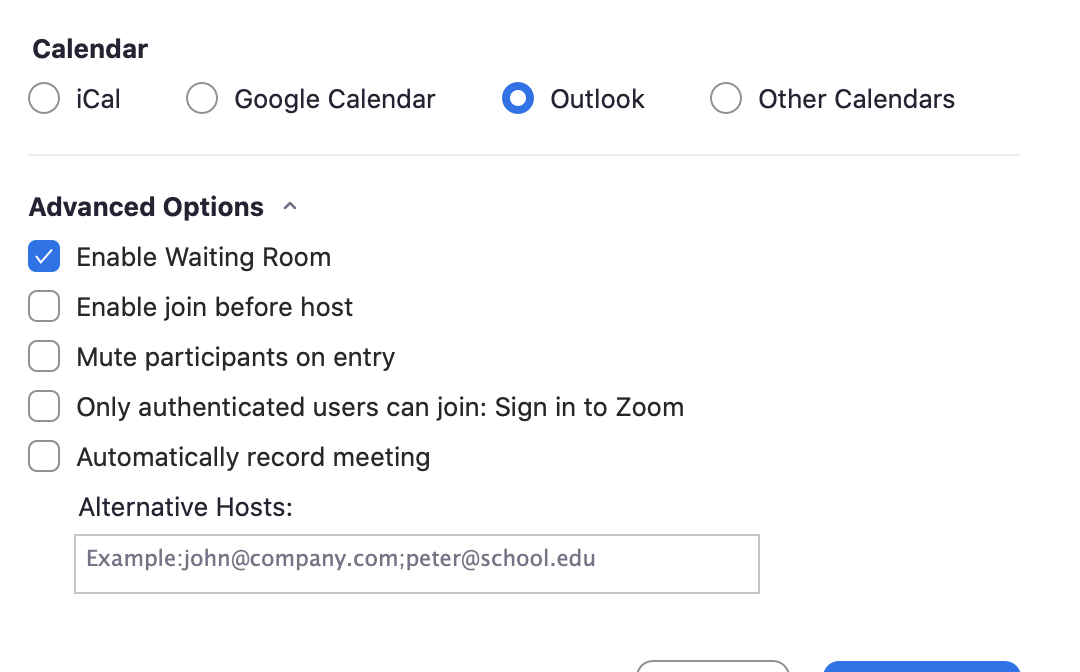This page is intended to give examples of good practice of academic mentoring from across LSE and to provide inspiration for your own academic mentoring. The examples that follow were shared by colleagues in our academic mentoring community of practice, which meets fortnightly over Zoom. You can sign up for these sessions via the Atlas website.
For more information, contact Dr Akile Ahmet: a.ahmet@lse.ac.uk or Francesca Humi: f.g.humi@lse.ac.uk
For additional resources from the Eden Centre for academic mentors and student-facing staff during the Covid-19 outbreak, please visit:
Supporting Students guidance (includes links to relevant services already available at LSE and to external resources)
1. Communicating with students effectively
A major element of academic mentoring is communication, whether that is through emails, calls, or video conferencing. The following examples can help you communicate with your mentees effectively.
Surveying students:
To better communicate with students and to help understand what their living situation may be, the Department of Law, for example, has sent out surveys to students to find out their location, access to internet, and equipment for home study. This following is based on one of the surveys:
Full name
Student Number
LSE email address
Programme of Study
Year of study (Undergraduate students only)
Where will you be residing for the remainder of the 2019/20 academic year? (multi-choice)
London – in a student hall of residence
London – shared or non-parental accommodation
Living at home, with parents or careers
Elsewhere in the UK
Overseas
If you will be living overseas, can you please tell us which country this will be in?
Are you currently self-isolating (so we can check in more often)?
The second survey, which is focused on assessing needs for exams, is accessible here.
Drop-in academic mentoring:
A way of remaining accessible, while still maintaining boundaries and work-life balance, which has been trialled in Accounting, is through setting up one hour of drop-in academic mentoring via Zoom once or several times a week. This can alleviate pressure on students to book a meeting directly. For the drop-in element to be effective, when you create the meeting on Zoom, in the “Meeting Options” section, tick the “Enable waiting room” option (see screenshot below). This will create a waiting room for students to be held while you talk with another.
Reaching out to students who aren’t responding:
Some students may not be responding to communication. This could be because of internet connectivity issues, as reported by students who are in quarantine camps. This could also be because they are at home and therefore have a family or other community support-systems. However, if this becomes a cause for concern, e.g. if they have a history of personal or external issues affecting their studies, you should email unresponsive students individually clarifying you are concerned about them and you are not contacting them for disciplinary purposes. This may encourage them to answer and share with you what issues they are facing.
You can also choose to share a phone number they can call you directly. You can have your office phone forwarded onto your mobile by emailing IT Service Desk.
Video communication:
Many students are feeling isolated and enjoy audio-visual communication from the School, their department, and/or programme director. In the Department of Law, the LLB programme director made and shared a video explaining clearly assessment methods, rationale, and expectations to reassure students. The Department of Government’s Head of Department has also released a video message, which was well received by the community.
2. Contingency planning
Amidst the current Covid-19 outbreak, it is important to have a contingency plan in place in case you are ill or have to care for someone who is ill, to ensure a smooth mentoring process for you and your mentees. Stay in touch with other academic mentors in your department and share experiences of mentoring online with them. You should also keep your departmental manager or head of department updated on any major issues relating to your mentees. This ensures that your team can take the necessary steps to support you and your students if you do fall ill.
We recommend that you designate in advance a departmental colleague who would take up your mentoring duties if you are ill or have to care for someone. If this does happen, you should set up an automatic reply in which you clearly identify them with their email as the person students should contact while you are ill. We also advise that you do not work through your illness.
3. Staying well and managing expectations
While it is very important to support students, especially as many fall ill, are self-isolating, or are in quarantine camps, it is also essential that you can cope with your workload and re-establish work/life limits and balance. Furthermore, by projecting normalcy and maintaining normal office hours, this will help kerb student stress or feeling of emergency.
Due to other work commitments, parenting or caring duties, you may be answering emails to students outside of core working hours, but to avoid sending emails at irregular hours, we recommend you schedule emails to be sent the following morning, for example, if you are writing at night. You may also be recording lectures or preparing other materials in advance for lectures and classes, if you are doing so, you should upload them during regular working hours. Taking these small steps will help ensure students and colleagues not to feel pressured to work outside of core hours that you are.
You should manage student expectations of your availability and refer them to other relevant services from across the School, including:
School Senior Advocate for Students, Dr Pete Evanson, for academic and pastoral support to students
Further student services are posted on the “Supporting Students” page.
Finally, we also encourage you to take the time to care for yourself. The following resources may be helpful for managing stress and anxiety in these uncertain times:
MIND’s resource on “Coronavirus and your wellbeing”
UMO UK infographic
Mental Health Foundation guidance
